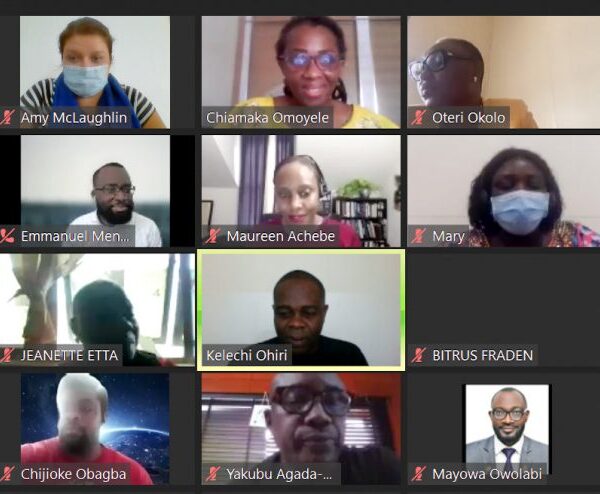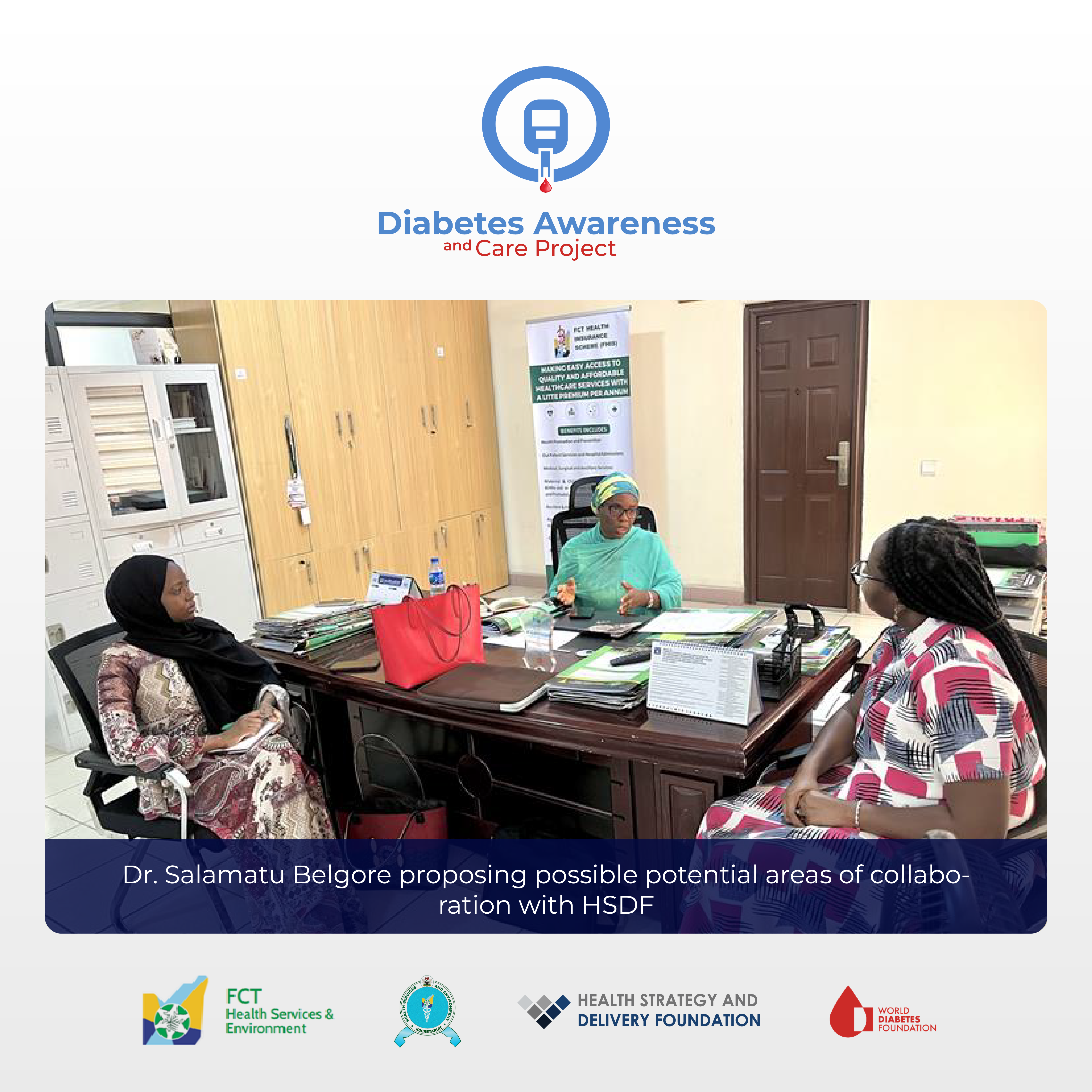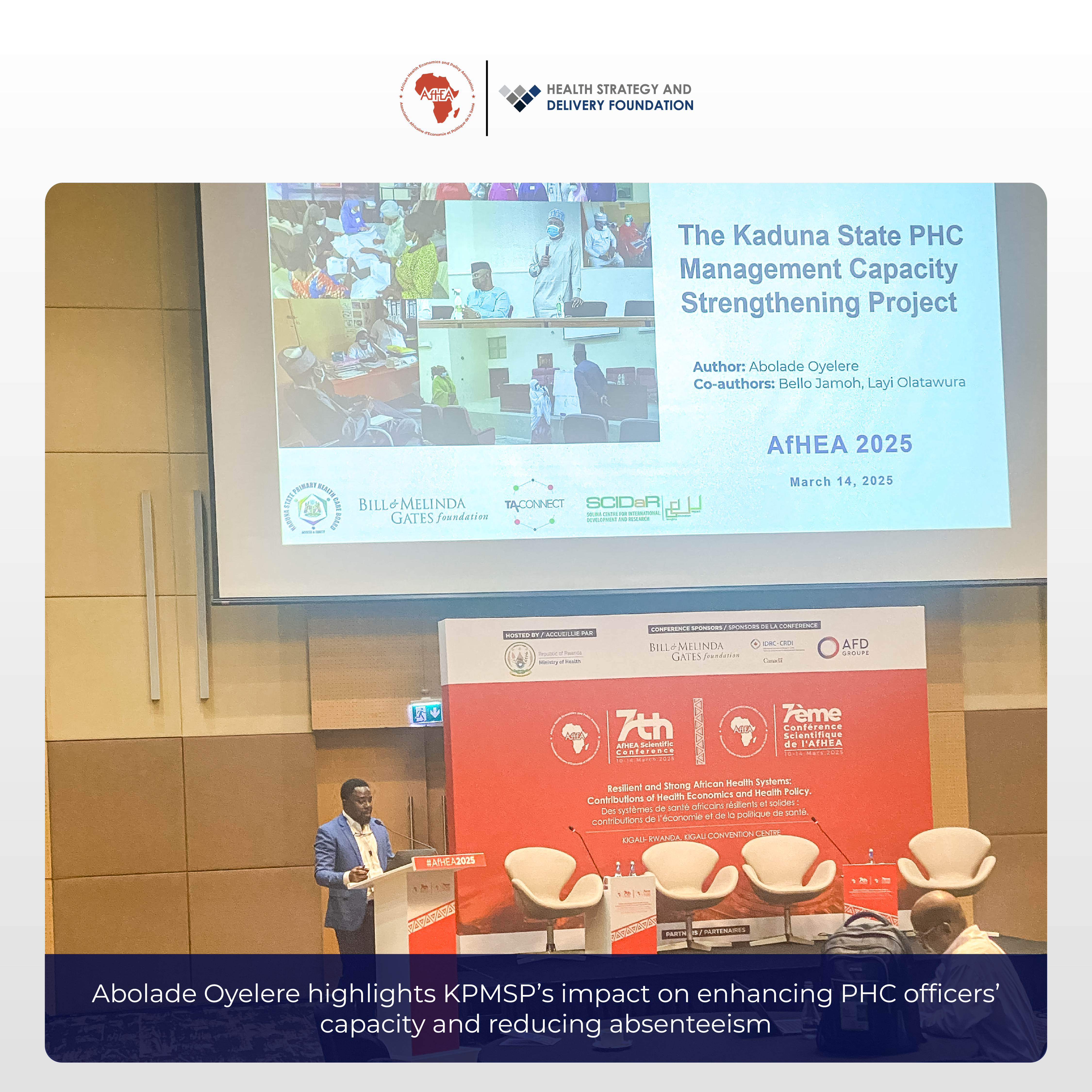Nigeria NCDI Poverty Commission Holds Its Second Meeting
The second meeting of the Nigeria Non-Communicable Diseases and Injuries (NCDI) Poverty Commission held virtually on Wednesday, 28th July 2021. In attendance were the Chair, Dr Morenike Alex-Okoh (Director Public Health, Federal Ministry of Health), represented by Dr Oteri Okolo (Director, Public Health Department, FMoH), the co-chair, Dr Kelechi Ohiri (CEO, Health Strategy and Delivery Foundation), other members of the NCDI commission and representatives from the NCDI Poverty Network co-secretariat.
Following the commission’s maiden meeting on 30th March 2021, where Nigeria’s Honorable Minister of Health, Dr Osagie Ehanire, inaugurated the diverse 25-person commission team; the commission kicked off phase 1 activities. Specifically, the situation analysis to understand and document (i) the gaps in NCDI policies and strategies and progress towards universal health coverage (UHC), (ii) the NCDI disease burden from a wide range of diseases outside the 4×4 framework[1], (iii) the availability and coverage of NCDI services compared with health service norms and standards and (iv) expenditure and investments towards NCDIs. The analysis has been ongoing with support from the commission secretariat, consisting of team members from Health Strategy and Delivery Foundation (HSDF) and the Non-Communicable Diseases (NCDs) division of the Federal Ministry of Health (FMoH).
The objective of the second meeting was to share the findings so far, highlight challenges and engage the commissioner’s expertise.
Dr Oteri Okolo read the chair’s welcome remark on behalf of Dr Morenike Alex-Okoh. She reiterated the commission’s objectives and appealed to all the commissioners to critically review and provide their technical inputs to guide the ongoing situation analysis by the secretariat. This was followed by a presentation on the NCDI Poverty Network by Dr Emmanuel Mensah, the West African Lead, NCDI Poverty Network co-secretariat. He gave an overview of the Network and restated that the network process which guides all national commissions work is a multi-year process from situation analysis to national scale-up.
In addition, the Nigerian secretariat team (represented by Mrs Chiamaka Omoyele , FMoH and Dr Christine Ezenwafor, HSDF) presented a progress report on the situation analysis. Mrs Omoyele (FMoH) presented the analytic framework that guides the situation analysis followed by findings on NCDI policies and strategies and NCDI disease burden using primary data. The presentation highlighted the gaps in the existing policies on risk factors[2] for NCDIs. Although most were dated, and policies for physical inactivity and harmful use of alcohol were lacking. Data sources for crude death data were also unavailable. As part of its identified next steps, the secretariat will engage commission members from secondary & tertiary health care facilities, academic and research institutions, and the Federal Road Safety Commission (FRSC) to close this gap.
On the other hand, Dr Christine Ezenwafor, (HSDF) presented the findings on NCDI disease burden using modelled data from the Global Burden of Disease Study 2019[3], health service standards and expenditure and investment on NCDIs. The presentation highlighted that in 2019, NCDs and injuries outside the 4×4 framework contributed to 48% of deaths from all NCDIs. Also, the DALY[4] burden due to NCDs such as congenital birth defects, haemoglobinopathies and haemolytic anaemias, endocrine, metabolic, blood, and immune disorders and unintentional injuries[5] is significant in the young (ages 0 to 39 years). It also highlighted that most NCDI conditions are attributed to factors outside the 4×4 framework. These include environmental and occupational risk factors and factors such as infectious disease, poverty and access.
For health service standards, Nigeria has documented norms and standards for NCDs for all levels of care delivery, including a comprehensive essential medicines list (7th edition, 2020) modelled after the WHO model list of essential medicines (21st edition, 2019). Due to limited data from accessible representative facility assessments, assessing the availability, distribution and coverage of NCDI service and commodities compared with norms and standards has been challenging.
In addition, the presentation by Dr Ezenwafor highlighted the huge financing gap for NCDIs and the implication for the poor. National Health Accounts (NHA) showed that in 2018[6], out-of-pocket expenditure per capita on NCDs and injuries was 85% and 80% of the total health expenditure per capita, respectively, while government expenditure was 14% for NCDs and 18% for injuries. Also, NCDs and injuries accounted for only 8% and 4%, respectively, of the total health expenditure per capita on all diseases and conditions.
Following the situation analysis presentation, the co-chair, Dr Kelechi Ohiri, facilitated a guided discussion to get feedback from the commissioners on the analysis findings. He also addressed the role of the commission members in closing some of the data gaps and, from the commission-stakeholder term of reference, he reiterated all stakeholders roles and responsibilities.
The commission’s next steps include developing the first draft of the commission report (synthesizing the situation analysis findings) followed by the priority setting phase, which will inform the objectives of the third commission meeting to take place by October 2021.
The Nigerian Secretariat team will join other Phase 1 National Commission representatives (from Ghana, Benin, Cameroon, Burkina Faso, Democratic Republic of Congo, and Cambodia) at the fourth NCDI Poverty Network learning session in August 2021 to review the prioritization approach, informing the prioritization exercise for a country expanded NCDI agenda.

Reference
[1] The 4×4 framework is group of 4 non-communicable diseases (NCDs)- cardiovascular diseases, diabetes, cancer and chronic respiratory diseases and 4 modifiable risk factors that they have in common i.e., tobacco use, unhealthy diets, physical inactivity, harmful use of alcohol.
[2] Risk factors included tobacco use, unhealthy diets, physical inactivity, harmful use of alcohol.
[3] Global Burden of Disease Collaborative Network. Global Burden of Disease Study 2019 (GBD 2019) Results [Internet]. Seattle, United States; 2020 [cited 2021 Jun 3]. Available from: http://ghdx.healthdata.org/gbd-results-tool
[4] DALY – Disability Adjusted life Years.
[5] Unintentional injuries include falls, drowning, injuries from fire/heat/hot substances, poisonings, exposure to mechanical forces, adverse effects of medical treatment, foreign body.
[6] WHO Global Health Expenditure Database. https://apps.who.int/nha/database/Select/Indicators/en.
Recent News
Grants and Business Development Specialist
We are seeking a highly motivated and experienced Grants and Business Development Specialist to join our organization. The successful candidate will be responsible for identifying funding opportunities, developing grant proposals, and fostering partnerships with potential donors and stakeholders (regional and global). This role plays a vital part in securing funds and resources to support our organization’s mission and projects.
Apply NowPublic Health Consultant, Guinea
The consultant (working with the Accelerator team) will collect results from the tool, organize a meeting with stakeholders to discuss results from the tool, and produce a report on key findings and recommendations from the tool to be shared publicly.
Apply NowPublic Health Associate, Senegal
We are currently in search of an experienced Public Health professional in Senegal to work on the anticipated Nutrition Capacity Development and Financing Platform and provide technical assistance to elevate nutrition financing and strengthen local capacity to support these efforts. The Associate must be bilingual (English and French).
Apply Now


